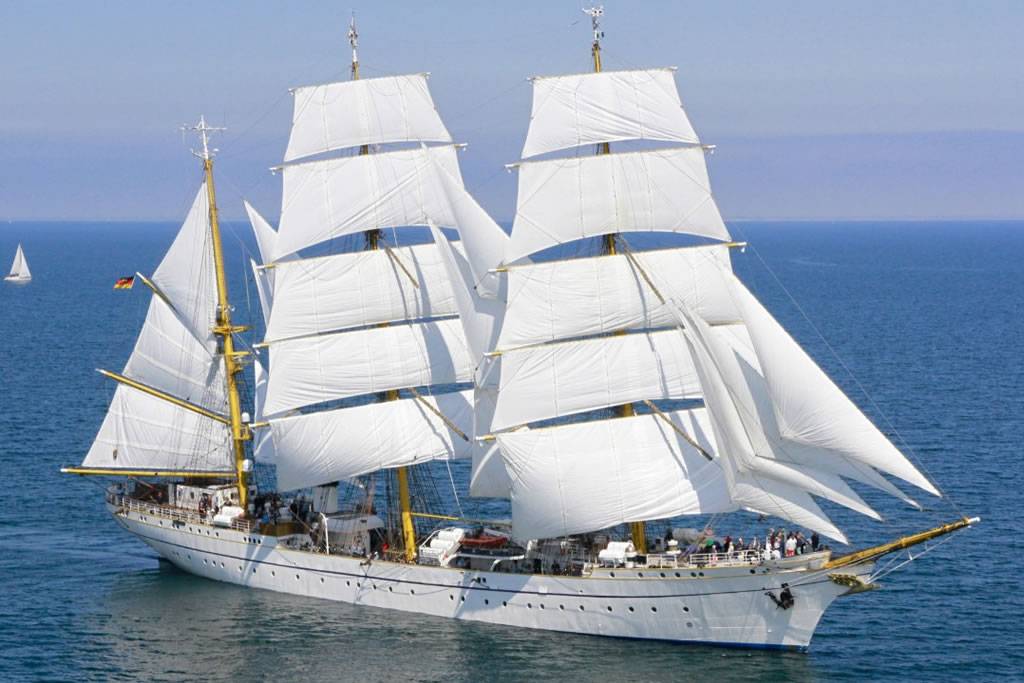The dark legend of the 'Gorch Fock' the German naval training ship that claimed two lives
- 15-04-2025
- Gran Canaria
- Canarian Weekly
- Photo Credit: AH
The Gorch Fock, Germany’s famed naval training ship currently docked at the naval base in Las Palmas de Gran Canaria, is celebrated as a symbol of maritime tradition and military prestige, however, beneath its ceremonial appearances and long voyages lies a turbulent history marked by controversy and tragedy.
Now on its 182nd training voyage under the command of Frigate Captain Elmar Bornkes, the Gorch Fock carries around 250 aspiring naval officers from various countries, including Cameroon, Tunisia, Colombia, Senegal, Togo, Ghana, South Korea, and Iraq. These cadets are receiving basic seamanship training before continuing their studies at Germany’s armed forces universities in Hamburg and Munich.
Yet the ship's legacy is not without shadow. Two women lost their lives aboard the Gorch Fock, casting a long and dark shadow over its otherwise storied past. In 2008, cadet Jenny Böken died under circumstances that led to allegations of sexual harassment and threats. Two years later, in November 2010, 25-year-old officer candidate Sarah Lena tragically fell to her death from a height of 30 metres shortly after the ship arrived in Brazil.
Her death ignited a mutiny aboard the vessel, as several cadets refused to continue sailing. The German Defence Minister at the time, Karl-Theodor zu Guttenberg, intervened, siding with the crew and ordering the dismissal of then-captain Norbert Schatz.
The captain had attempted to proceed with the voyage after expelling the four mutineers, but the incident prompted national reflection on Germany’s naval culture, particularly outdated codes of unquestioned obedience.

Sarah Lena had reportedly informed her superiors that she was not fit to climb the rigging following a demanding sea crossing. Nevertheless, she was ordered aloft, without proper safety measures, a customary yet dangerous practice. Her death led to a further outcry from the crew regarding inappropriate conduct by officers.
The ship itself is a replica of an earlier Gorch Fock vessel built in 1933, which served during the Second World War before being sunk by Soviet forces. The original was salvaged and taken to the USSR, where it sailed under the name Tovarishch. Germany later received it back in 2003, but the current Gorch Fock, constructed in 1958 at Hamburg shipyards, has carried the legacy since.
Built from steel and boasting three masts, 23 sails, and weighing 300 tonnes, the Gorch Fock is both elegant and sturdy. It is also equipped with an auxiliary engine for calm seas or restricted waterways. The ship’s home port is Kiel, where its folding masts allow it to pass under the city’s canal bridges.
Between 2015 and 2021, the vessel underwent an extensive overhaul, ensuring its continued role in training future generations of naval officers. But as it docks in ports around the world with fanfare and official visits, such as its recent arrival in Gran Canaria, its name still evokes memories not just of tradition and pride, but of a painful chapter that reshaped policies and culture aboard Germany’s naval ships.



























































